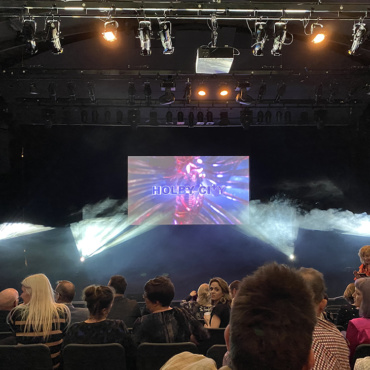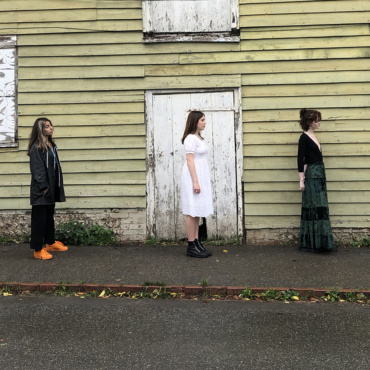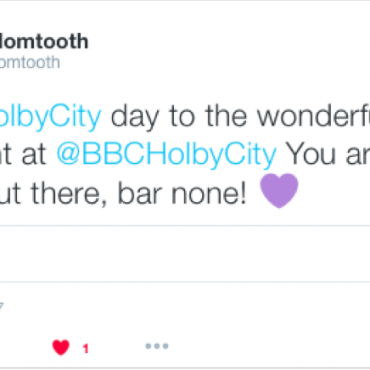We’ve come a long way since the Ancient Olympics – athletes competed naked, prizes included vats of olive oil and results were inscribed on ancient Papyrus for a handful to read.
Shocking to the modern native – yes (though the olive oil may come in handy at dinner parties) – but even more shocking to the digital native, who now has Olympic access at their fingertips. With the BBC delivering up to 24 simultaneous live streams of coverage across PC, mobile, tablet and connected TV, it’s no wonder the Sport website amassed the biggest audience in its history – the Sunday after the opening ceremony generated 6.1 million unique browsers in the UK and 8.3 million worldwide.
A lesson to be learnt from ‘the first social media Olympics’, says The Guardian’s Emily Bell, is the relationship between media operators and technology is at its best when it is actively trying to give people what they want. Once again, the proof is in the record figures: 1.7m requested for the Olympics opening ceremony on BBC iPlayer on the first weekend, with 925k on Saturday alone (an all-time high). There were also 1.15m downloads for the BBC Sport Olympics app, with 55% of browsers coming from non-desktop devices on the Saturday. And let’s not forget Twitter: the official Olympic site set up live cameras at events, which quickly gathered hundreds of thousands of followers.
These astounding figures show the importance of multi-platforms in reaching widespread audiences. Browsers across each of the online “four screens” have all seen uplift in daily unique browsers of +70% or more since the start of the Games, with 2.3m accessing BBC coverage via mobile browsers in one day. What’s more, the infamous ‘red button’ interactive guide was accessed by 20 million people in the first few days of the event, according to Roger Mosey, the head of Olympics coverage.
Mosey isn’t shy to boast the impressive viewing figures on his personal Twitter account: ‘The Brownlee brothers were watched by a peak audience of 5.6m winning gold and bronze. Surely best ever UK figure for triathlon. #BBC2012’ (8 August), ‘More Monday TV audiences. Athletics peak confirmed 12.0m; Cycling 7.3m; Gymnastics @bethtweddlenews 5.3m; Showjumping gold 2.2m. #BBC2012’ (7 August). He also regularly interacts with his followers and re-tweets messages of appreciation. It is this kind of interaction that makes audiences feel they have a say and can influence media output.
The flipside of all this, writes Emily Bell, is that the relationship between media operators and technology is at its worst when it prevents audiences from getting what they want. American TV network giant NBC had viewers up in arms, offering live streaming only online, to pay-TV customers. NBC has built its Olympic coverage around edited prime-time packages of events that often took place several hours earlier. The fact the network generates most of its revenue via advertising, as opposed to a licence fee, is justified but as Mosey says, ‘We respect what NBC is doing, but the BBC would have been absolutely killed if it had time-shifted the opening ceremonies” .
One person wrote on the TV & Showbiz site ‘Digital Spy’:
“I was in America for the start of the games – it was very bizarre seeing them pretending the opening ceremony wasn’t happening until 7.30pm EST. Not one mention that it was actually delayed coverage, not even a hint of it on TV or newspapers – and whilst the ceremony was actually happening they were showing the usual afternoon chat shows…”
NBC was under further controversy when it persuaded Twitter to suspend The Independent’s Los Angeles correspondent Guy Adam’s account, after he criticised its coverage of the Olympics. Adam’s wrote: “The man responsible for NBC pretending the Olympics haven’t started yet is Gary Zenkel. Tell him what you think!” His tweet then contained the work email address of Mr Zenkel, the President of NBC Olympics.
After Twitter claimed it breached privacy guidelines (which he refuted), Adam’s responded, “Either way, [it’s] quite worrying that NBC, whose parent company is an Olympic sponsor, is apparently trying (and, in this case, succeeding) in shutting down the Twitter accounts of journalists who are critical of their Olympic coverage.”
The fact Adam’s suspension generated thousands of angry messages on Twitter (including those from Jeremy Vine and Piers Morgan) shows you cannot take your audience for granted, or indeed attempt to fool them, in an age where social media is all-pervading. The BBC’s sterling ubiquitous Olympic’s coverage, combined with positive viewer response, is proof of this.
As a user states on Digital Spy (after it was suggested American’s are ambivalent about the games and can avoid knowing results when at work):
“Errrr hey? Must work in a very strange workplace if ‘most people’ don’t care about sport.
Especially a workplace where nobody looks at Facebook, Twitter, news websites, forums, listens to the radio, sees a TV screen, has friends who are interested and might text them results. Avoiding results of sports events is now harder than ever, NBCs strategy belongs in another age.”
By Emma Rink




